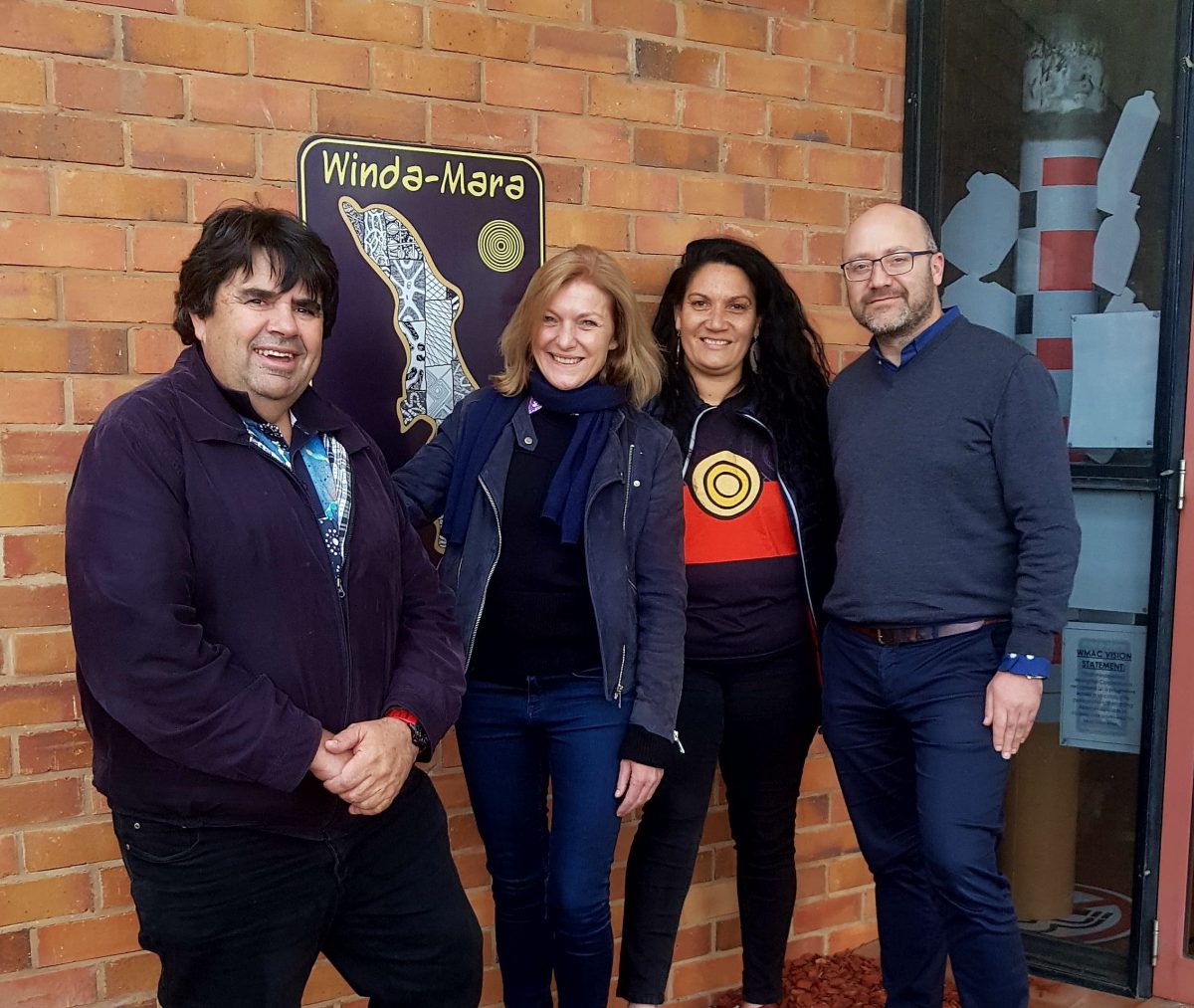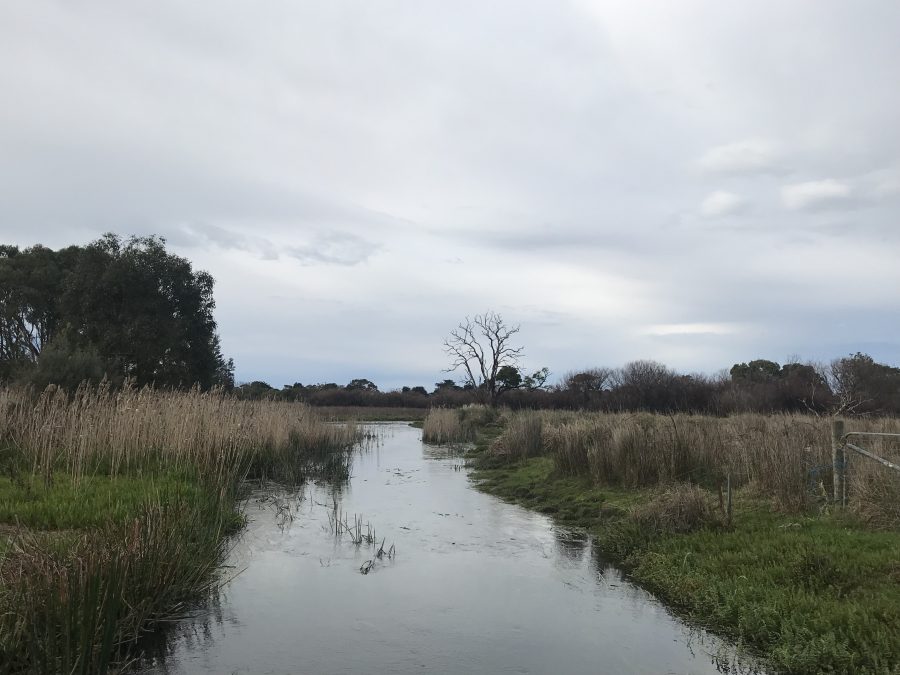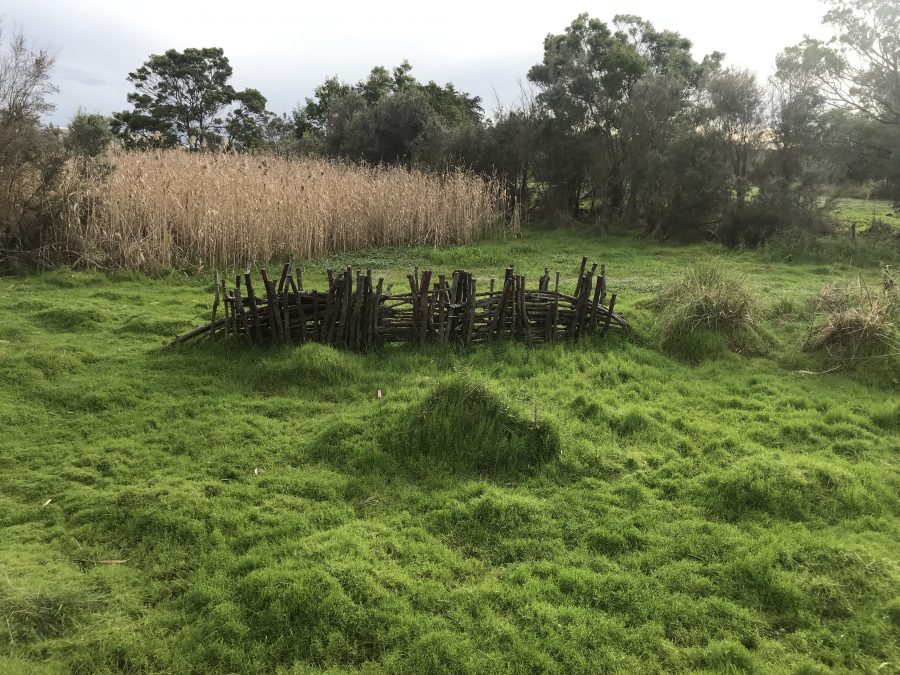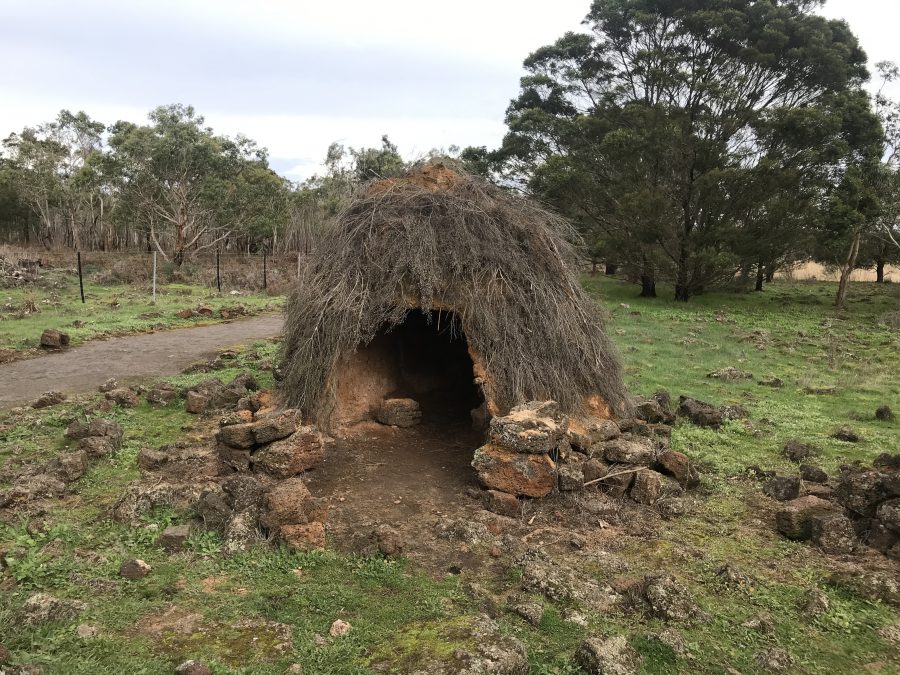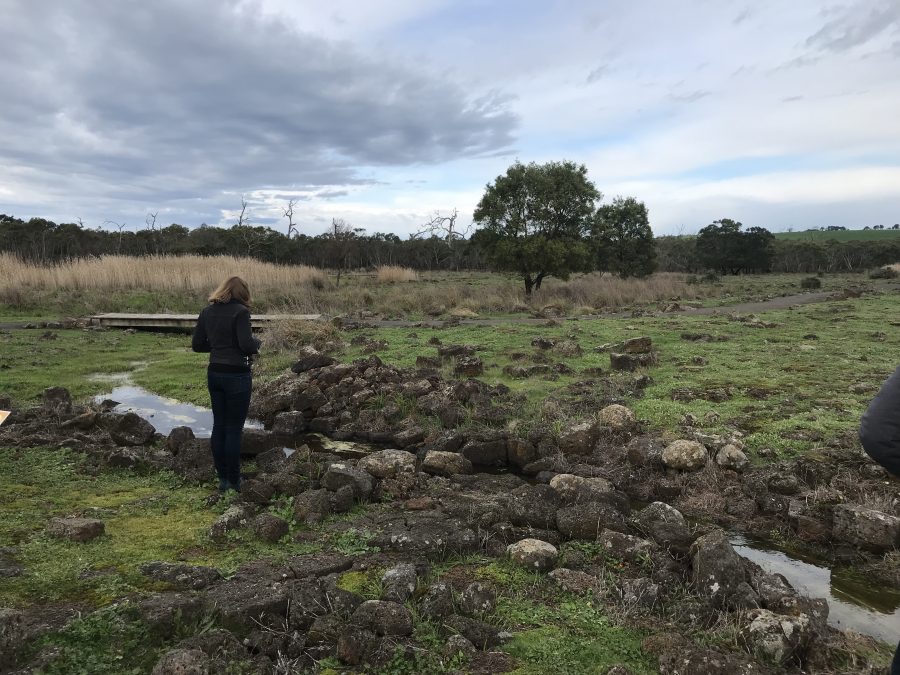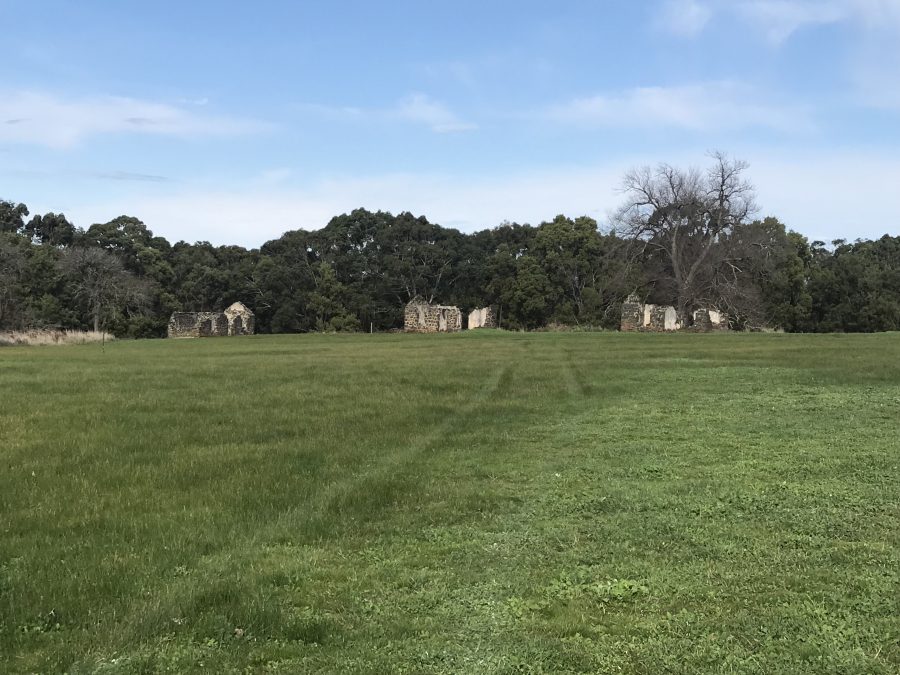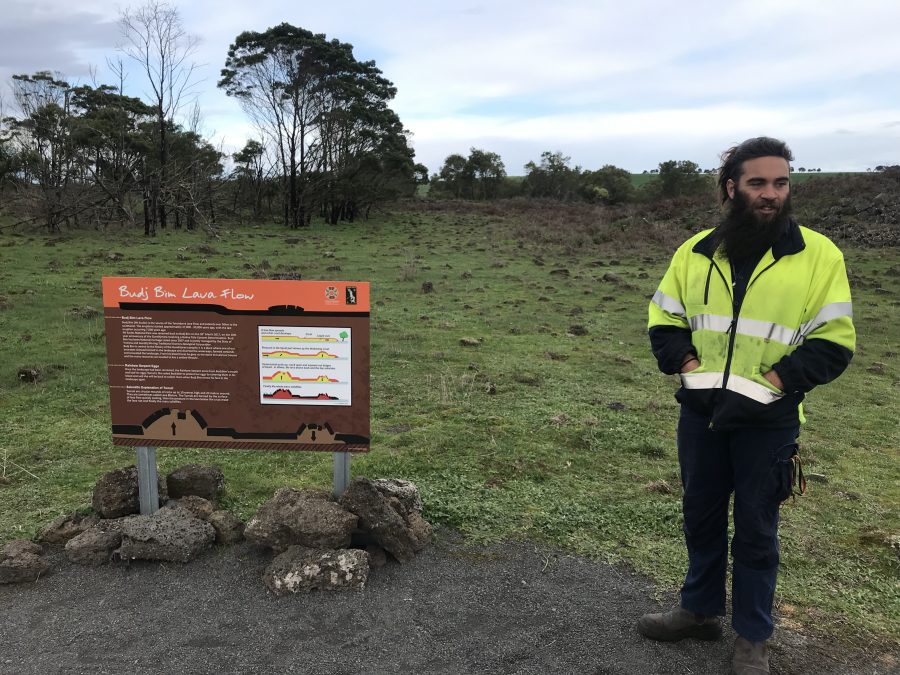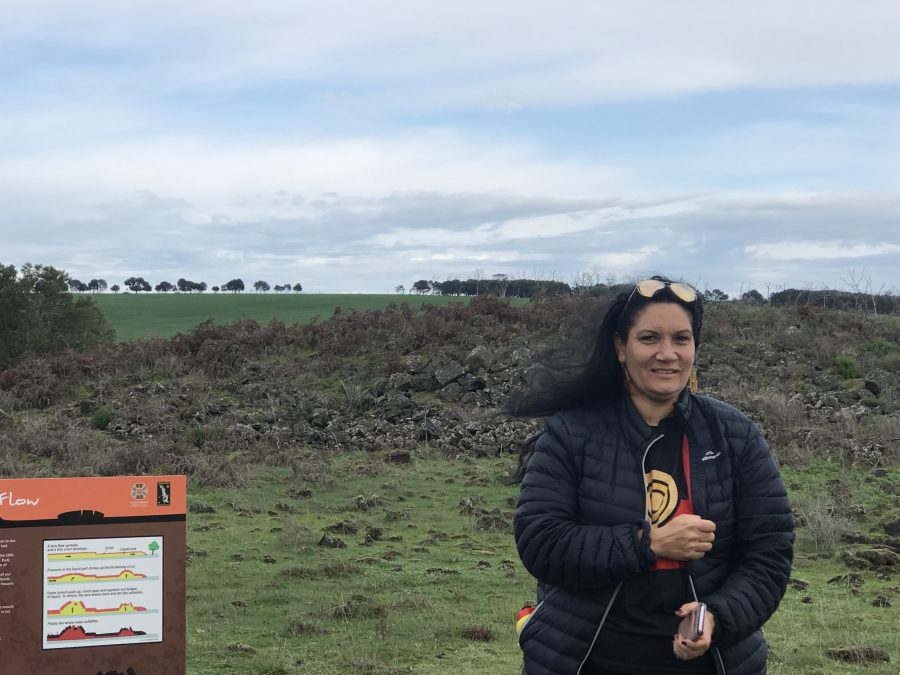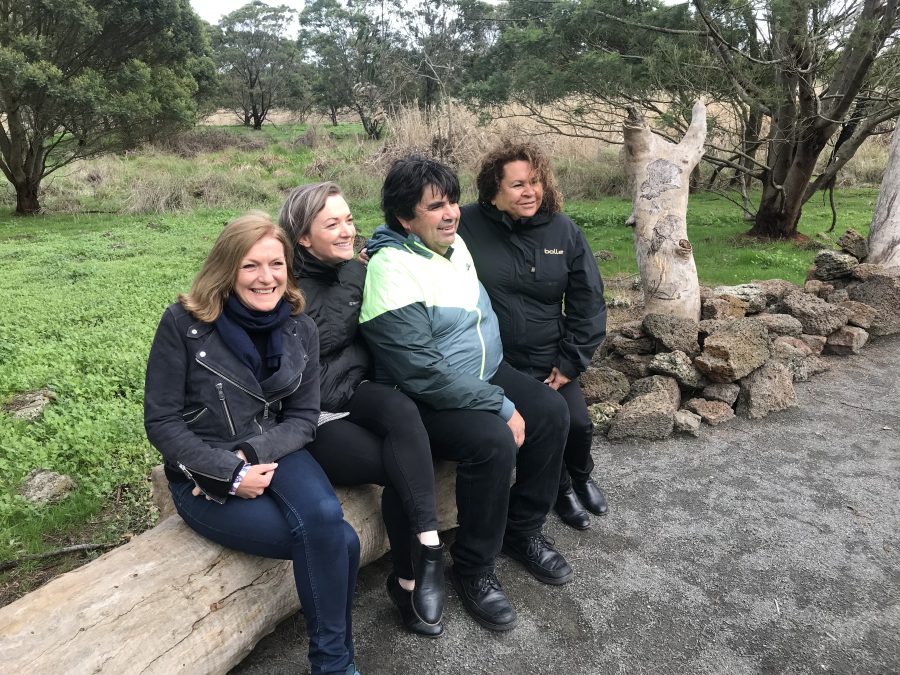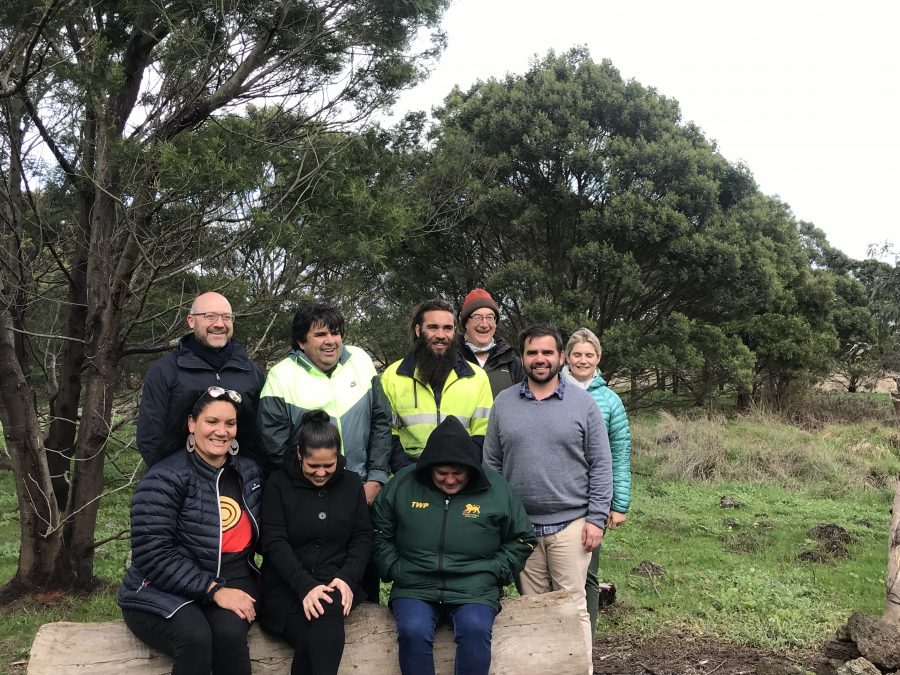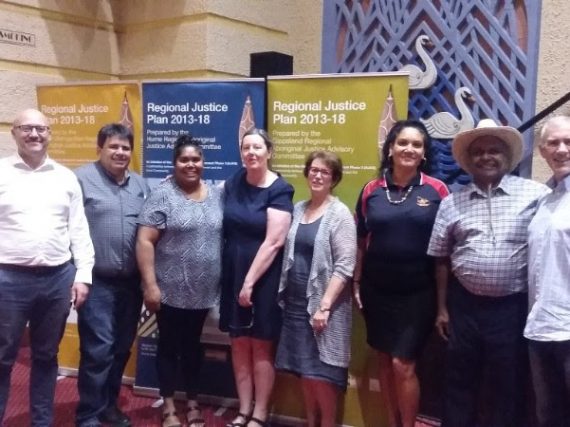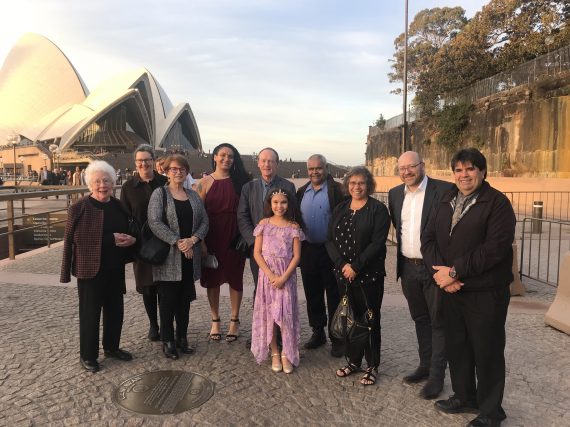State politicians hear from Aboriginal Victorians on country as part of spent convictions inquiry
Members of a Victorian parliamentary inquiry into a legislated spent convictions scheme have travelled to Gunditjmara country to learn more about the impacts of criminal record discrimination.
L-R: Winda-Mara's Michael Bell, Reason Party MP Fiona Patten, Woor-Dungin's Naomi Murphy and CIJ's Stan Winford
The Legal and Social Affairs Committee is looking at whether the Victorian Parliament should make new laws about how criminal records can be disclosed, and the particular impacts of criminal history discrimination on Aboriginal Victorians.
The Committee Chair, Fiona Patten, and the President of the Legislative Council, Shaun Leane, visited sites in southwest Victoria at the invitation of Woor-Dungin’s Criminal Record Discrimination Project and Winda-Mara Aboriginal Corporation in Heywood.
This is the first time a Parliamentary Committee has held a hearing on-country.
.@FionaPattenMLC: “If you haven’t committed another crime after 10 years, I think it’s fair that your future isn’t burdened by that mistake you made a decade ago.” Victoria contemplates wiping spent convictions. https://t.co/pOItqJ9PIT
— The Saturday Paper (@SatPaper) July 4, 2019
During the hearing, the Committee heard from Aboriginal people who had received rejections and knock backs when applying for jobs, and people who simply gave up applying, because of their criminal records.
They also heard from members of the Victorian Aboriginal Children and Young People’s Alliance about the impact on young Aboriginal people in out-of-home care, and the lack of self-determination for families seeking to be kinship carers.
Local employment providers spoke to the Committee about challenges in finding employment for Aboriginal people with criminal history, while representatives of the Regional Aboriginal Justice Advisory Committee also urged reform.
Before the hearing, guided by local Aboriginal Rangers, the Parliamentary Committee also toured Budj Bim, Tyrendarra Indigenous Protected Area and Lake Condah Mission, learning about life for Gunditjmara people during colonisation.
The Committee heard how criminal record reform is even more important now that Budj Bim has been given World Heritage status, because the listing will open up new opportunities for local Aboriginal people to engage in economic development, cultural heritage and tourism activities, but the current laws on criminal record disclosure could hold them back.
The Committee’s proceedings and the tour of Budj Bim were recorded and reported by the ABC and The Age, as well as local media.
The Committee will report to the Parliament on 29 August 2019.
My story today: Old convictions holding back Aboriginal Victorians, inquiry told https://t.co/aLEviPtdFE
— Miki Perkins (@perkinsmiki) August 11, 2019
READ MORE>
Local push for spent convictions scheme – article in Portland Observer 9 August 2019
